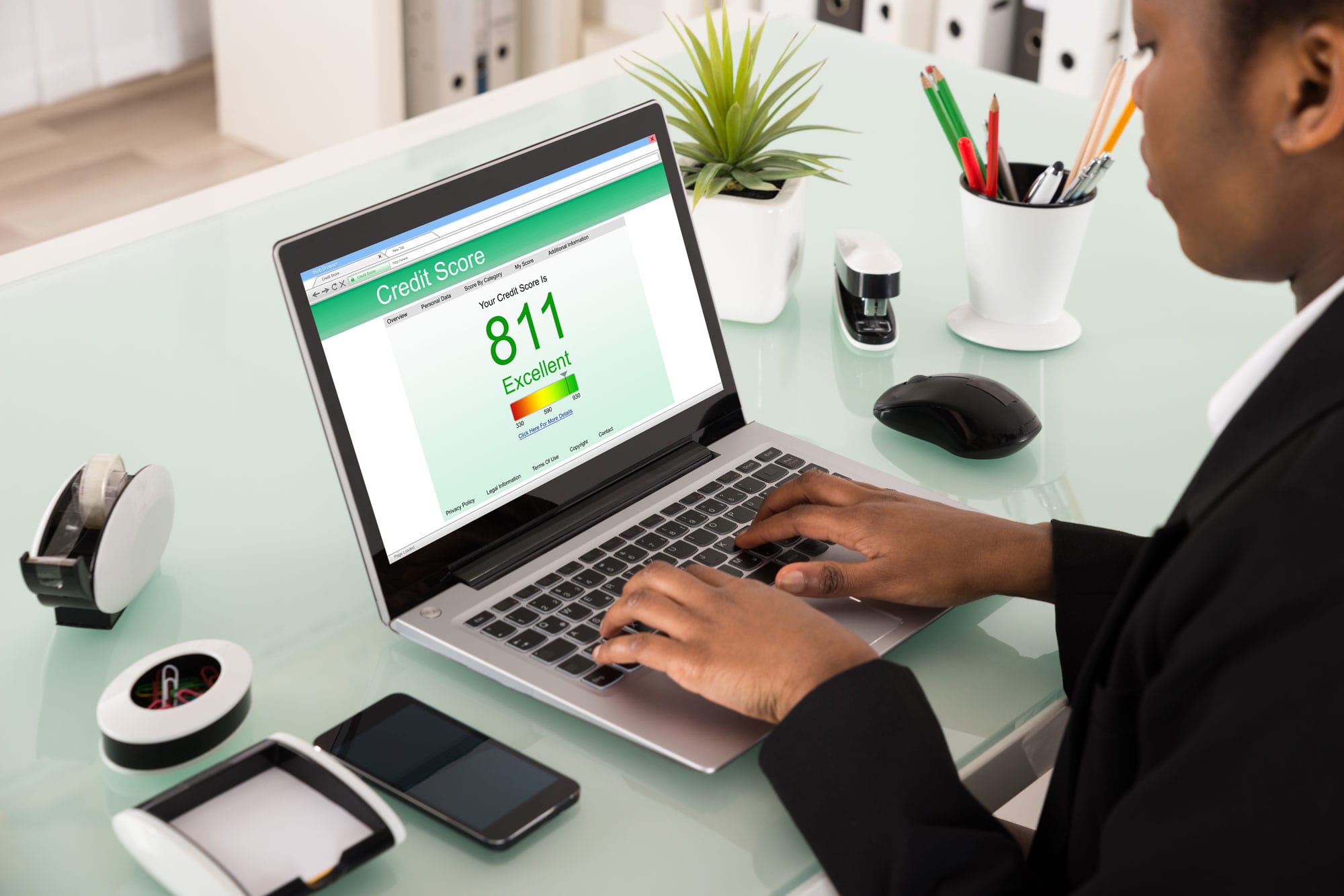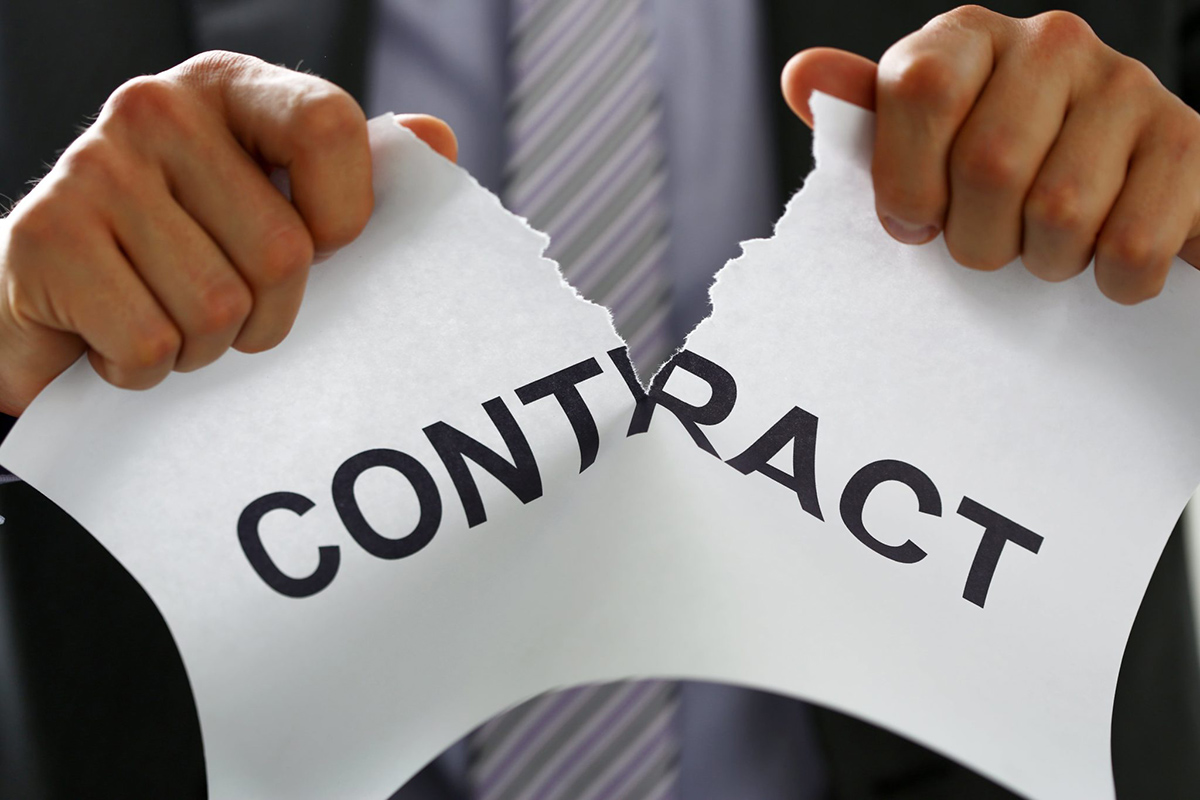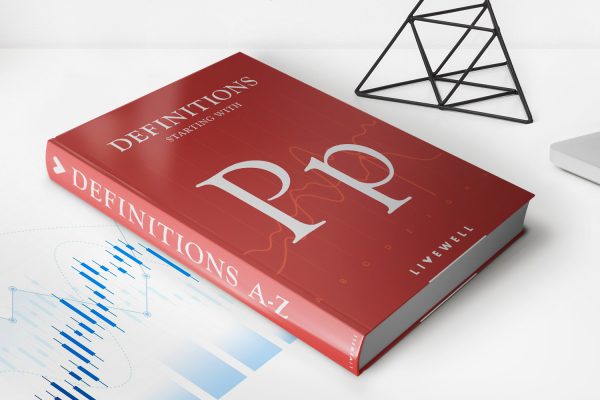

Finance
What To Do Before A Credit Check
Published: January 10, 2024
Ensure a smooth credit check process by taking necessary steps beforehand. Manage your finances and avoid potential obstacles with our comprehensive guide.
(Many of the links in this article redirect to a specific reviewed product. Your purchase of these products through affiliate links helps to generate commission for LiveWell, at no extra cost. Learn more)
Table of Contents
- Introduction
- Understanding Credit Checks
- Importance of Preparing for a Credit Check
- Steps to Take Before a Credit Check
- Review Your Credit Reports
- Correct Any Errors on Your Credit Reports
- Pay Off Outstanding Debts
- Reduce Credit Card Balances
- Avoid Opening New Credit Accounts
- Maintain Good Payment Habits
- Gather Necessary Documentation
- Research and Compare Lenders or Creditors
- Consider a Credit Freeze or Fraud Alert
- Conclusion
Introduction
When it comes to managing your finances, credit plays a crucial role. Whether you’re applying for a loan, a credit card, or even renting an apartment, chances are your credit will be checked. Credit checks, also known as credit inquiries, are assessments of your creditworthiness and financial history.
Understanding the purpose and process of credit checks is important for anyone seeking financial opportunities. But it’s not enough to just be aware of credit checks; you need to be prepared for them. Taking proactive steps before a credit check can greatly impact the outcome and potentially open doors to better financial opportunities.
Preparing for a credit check involves assessing and improving your credit score, as well as ensuring that your credit reports are accurate and up to date. It also entails gathering necessary documentation and researching lenders or creditors. By taking these steps, you can increase your chances of obtaining favorable terms and rates.
In this article, we will explore why it is important to prepare for a credit check and provide you with a comprehensive guide on what to do before undergoing a credit check. From reviewing your credit reports to paying off outstanding debts, we will cover everything you need to know to put your best foot forward when it comes to credit inquiries.
Understanding Credit Checks
A credit check is an evaluation of your creditworthiness and financial history. It is a way for lenders, creditors, landlords, and other financial institutions to assess the level of risk involved in doing business with you. Credit checks provide valuable information about your ability to manage debts and make timely payments.
There are two types of credit checks: soft inquiries and hard inquiries. Soft inquiries occur when a person or company checks your credit for informational purposes, such as pre-approved credit offers or background checks. Soft inquiries do not affect your credit score.
On the other hand, hard inquiries are made when you apply for credit, such as a loan or credit card. Hard inquiries are recorded on your credit report and they can have a temporary negative impact on your credit score. Multiple hard inquiries within a short period of time can signal to lenders that you are actively seeking credit and may be a higher risk.
It is important to note that credit checks are not only limited to financial institutions. Employers, insurance companies, and even landlords may also check your credit as part of their evaluation process. This is because your credit history can provide insights into your financial responsibility and reliability.
Understanding credit checks is essential because it allows you to be informed and prepared. By knowing the types of inquiries and how they can impact your credit, you can take the necessary actions to maintain a healthy credit profile and improve your creditworthiness.
In the next section, we will discuss the importance of preparing for a credit check and why it can significantly impact your financial opportunities.
Importance of Preparing for a Credit Check
Preparing for a credit check is crucial because it can have a significant impact on your financial opportunities. Whether you’re applying for a loan, a credit card, or even renting an apartment, your creditworthiness will be evaluated. Here are a few key reasons why preparing for a credit check is important:
1. Access to Better Financial Opportunities: A strong credit profile can open doors to better financial opportunities. Lenders and creditors are more likely to offer favorable terms and lower interest rates to individuals with good credit. By preparing for a credit check, you can take steps to improve your creditworthiness and increase your chances of accessing better loan options, credit cards, and other financial products.
2. Avoiding Surprises: By checking your credit reports and understanding your credit history before a credit check, you can avoid any surprises or potential issues that may arise. It gives you the opportunity to identify and address any errors, discrepancies, or negative information on your credit reports before they negatively impact your creditworthiness.
3. Negotiating Power: When you’re well-prepared for a credit check, you have more negotiating power. By improving your credit score and addressing any outstanding debts or issues, you can present yourself as a responsible borrower and increase your chances of negotiating better terms and rates.
4. Building Trust and Credibility: By taking the time to prepare for a credit check, you demonstrate to lenders, creditors, and other financial institutions that you are proactive and serious about your financial responsibilities. It helps build trust and credibility with these entities, making them more inclined to do business with you.
5. Long-Term Financial Stability: Preparing for a credit check is not just about immediate benefits; it is also about ensuring long-term financial stability. By staying on top of your credit and taking the necessary steps to improve it, you set yourself up for future financial success. A strong credit profile can facilitate easier access to credit, better insurance rates, and even potential job opportunities.
Now that we understand the importance of preparing for a credit check, let’s explore the steps you should take before undergoing a credit check to maximize your chances of success.
Steps to Take Before a Credit Check
Preparing for a credit check involves several key steps. By following these steps, you can ensure that your credit profile is in the best possible shape before undergoing a credit inquiry. Here are the steps to take before a credit check:
- Review Your Credit Reports: Start by requesting copies of your credit reports from the major credit bureaus – Equifax, Experian, and TransUnion. Review each report carefully to check for any errors, inaccuracies, or fraudulent activity.
- Correct Any Errors on Your Credit Reports: If you find any errors on your credit reports, such as incorrect personal information, unauthorized accounts, or inaccurate payment history, you should dispute them with the credit bureaus. Provide any supporting documentation and request that the errors be corrected.
- Pay Off Outstanding Debts: Paying off outstanding debts can have a positive impact on your credit score. Prioritize paying off high-interest debts or accounts in collections. Set up a repayment plan and make consistent payments to reduce your overall debt load.
- Reduce Credit Card Balances: High credit card balances can negatively affect your credit utilization ratio, which is the percentage of available credit that you’re using. Aim to keep your credit utilization below 30% to maintain a healthy credit profile.
- Avoid Opening New Credit Accounts: Before a credit check, refrain from opening new credit accounts or applying for additional loans. Multiple recent inquiries and new accounts can raise red flags for lenders and may indicate financial instability.
- Maintain Good Payment Habits: Make sure to pay all your bills on time and in full. Late payments can severely impact your credit score and make lenders hesitant to approve your credit application.
- Gather Necessary Documentation: Before undergoing a credit check, gather all necessary documentation such as pay stubs, tax returns, bank statements, and any other relevant financial records. Having this information readily available can streamline the application process.
- Research and Compare Lenders or Creditors: Take the time to research and compare lenders or creditors to find the best fit for your financial needs. Look for reputable institutions with favorable terms and rates.
- Consider a Credit Freeze or Fraud Alert: If you suspect or have been a victim of identity theft or fraud, consider placing a credit freeze or fraud alert on your credit reports. These measures can help protect your identity and prevent unauthorized credit inquiries.
By following these steps, you can increase your chances of a successful credit check and improve your overall financial standing. Remember that preparing for a credit check is an ongoing process, and maintaining good credit habits is essential for long-term financial health.
Review Your Credit Reports
One of the first and most important steps to take before a credit check is to review your credit reports. Your credit reports contain detailed information about your financial history, including your credit accounts, payment history, and any negative marks or errors that may be impacting your credit score.
Obtaining copies of your credit reports from the major credit bureaus – Equifax, Experian, and TransUnion – is relatively easy. You are entitled to one free annual credit report from each bureau, which you can request online or by mail. Additionally, due to the COVID-19 pandemic, you can access your credit reports for free on a weekly basis until April 2022.
Once you have your credit reports in hand, it’s time to analyze them carefully. Look for the following information:
- Personal Information: Make sure your personal information, such as your name, address, and social security number, is accurate and up to date. Incorrect personal information can lead to credit report errors or confusion.
- Credit Accounts: Review all the credit accounts listed on your credit reports. Check if your open accounts are correctly reported, closed accounts are marked as closed, and all the information associated with each account is accurate.
- Payment History: Examine your payment history for each credit account. Ensure that all payments have been accurately reported, and there are no late payments or missed payments that you did not actually make.
- Public Records and Collections: Check for any public records, such as bankruptcies, tax liens, or judgments, that may have been mistakenly included on your credit reports. Additionally, look for any collections accounts that may require your attention.
If you come across any errors, discrepancies, or fraudulent activity on your credit reports, it’s important to dispute them promptly. Contact the credit bureau that issued the report in question and provide any supporting documentation to support your case. The credit bureau is required to investigate your dispute and correct any errors within a reasonable timeframe.
Reviewing your credit reports is not only important before a credit check, but it should also be done regularly to monitor your credit and ensure its accuracy. By staying on top of your credit health and addressing any issues, you can maintain a strong credit profile and increase your chances of a successful credit check.
Correct Any Errors on Your Credit Reports
After reviewing your credit reports, it’s essential to correct any errors or inaccuracies that you find. Mistakes on your credit reports can negatively impact your credit score and potentially hinder your ability to obtain favorable credit terms. Taking the time to address these errors can make a significant difference in your overall creditworthiness. Here’s what you should do:
1. Identify the Errors: Take note of any errors, discrepancies, or fraudulent activity that you discover while reviewing your credit reports. These can include incorrect personal information, false accounts, inaccurate payment history, or erroneous negative marks such as late payments or collections that don’t belong to you.
2. Gather Supporting Documentation: Collect any relevant documentation that supports your claim and proves that the information on your credit report is incorrect. This may include bank statements, payment receipts, loan agreements, or any other records that can serve as evidence.
3. Initiate a Dispute: Contact the credit bureau that issued the report in question, whether it’s Equifax, Experian, or TransUnion. You can typically initiate a dispute online through their respective websites or by mail. Provide a clear and concise explanation of the errors and include copies of the supporting documentation.
4. Follow Up on the Dispute: The credit bureau is required to investigate your dispute and make any necessary corrections within a reasonable timeframe. Be sure to follow up regularly to ensure that the inaccuracies are being addressed and that your credit reports are updated accordingly.
5. Notify the Creditor: If the error is related to a specific account, it’s a good idea to notify the creditor as well. Provide them with the same documentation and explanation of the inaccuracies. They can work with the credit bureaus to update their records and ensure that the correct information is reported.
6. Monitor Your Credit: After the dispute process, continue to monitor your credit reports regularly to ensure that the corrections have been made and that your credit information remains accurate. You can use free credit monitoring services or sign up for a credit monitoring tool to receive alerts of any changes or new information on your reports.
Correcting errors on your credit reports may take some time and effort, but it is well worth it to ensure that your credit profile is an accurate reflection of your financial history. By resolving these inaccuracies, you can improve your creditworthiness and increase your chances of a successful credit check.
Pay Off Outstanding Debts
Paying off outstanding debts is a crucial step in preparing for a credit check. Outstanding debts can negatively impact your creditworthiness, increase your debt-to-income ratio, and lower your credit score. By reducing your debt load, you can improve your financial standing and increase your chances of a successful credit check. Here’s what you should do:
1. Assess Your Debts: Start by making a list of all your outstanding debts, including credit card balances, personal loans, student loans, and any other types of debt you may have. Take note of the interest rates, minimum monthly payments, and total amounts owed for each debt.
2. Create a Repayment Plan: Develop a strategy for paying off your debts. Consider using the avalanche or snowball method. With the avalanche method, you prioritize paying off debts with the highest interest rates first, while with the snowball method, you focus on paying off debts with the smallest balances first.
3. Increase Your Monthly Payments: Review your budget to determine if there are areas where you can cut expenses in order to free up extra money for debt payments. By increasing the amount you pay each month, you can accelerate the debt repayment process and reduce the overall interest you’ll pay.
4. Prioritize High-Interest Debts: Consider prioritizing high-interest debts, such as credit card debt, as they tend to have higher interest rates and can quickly accumulate interest charges. Paying off these debts will not only save you money in interest but also improve your credit utilization ratio.
5. Explore Debt Consolidation Options: If you have multiple high-interest debts, you may want to consider debt consolidation. This involves combining your debts into a single loan or credit card with a lower interest rate. Debt consolidation can make it easier to manage your debts and potentially save you money on interest.
6. Negotiate with Creditors: In some cases, you may be able to negotiate with your creditors to lower your interest rates or develop a more affordable payment plan. Reach out to your creditors and explain your situation. They may be willing to work with you to find a mutually beneficial solution.
7. Stay Committed: Paying off debts takes time and discipline. Stay committed to your repayment plan and make regular payments. Celebrate each milestone achieved along the way to stay motivated in your debt repayment journey.
8. Monitor Your Progress: Track your progress as you pay off each debt. Seeing the reduction in your outstanding balances can provide a sense of accomplishment and motivate you to continue working towards becoming debt-free.
By paying off outstanding debts, you not only improve your credit score but also demonstrate to lenders that you are responsible and capable of managing your financial obligations. This can greatly enhance your chances of a successful credit check and better financial opportunities in the future.
Reduce Credit Card Balances
Reducing credit card balances is an important step in preparing for a credit check. High credit card balances can negatively impact your credit utilization ratio, which is the amount of available credit you’re using compared to your total credit limit. By decreasing your credit card balances, you can improve your credit score and present a more favorable credit profile to lenders. Here’s what you should do:
1. Assess Your Credit Card Balances: Begin by reviewing your credit card statements to determine the current balances on each card. Take note of the outstanding balances, the credit limits, and the overall credit utilization ratio for each card.
2. Develop a Repayment Strategy: Create a plan to pay down your credit card balances. Consider focusing on one card at a time or distributing payments across multiple cards. Choose a strategy that aligns with your financial situation and priorities.
3. Make More Than Minimum Payments: Paying only the minimum payment each month can lead to lingering credit card debt and increased interest charges. Whenever possible, strive to pay more than the minimum required amount to accelerate the repayment process.
4. Prioritize High-Interest Cards: If you have multiple credit cards, prioritize the ones with the highest interest rates for faster repayment. By paying off high-interest cards first, you save money on interest and make progress towards reducing your overall credit card debt.
5. Cut Back on Credit Card Usage: Temporarily reduce or eliminate using your credit cards while focusing on paying down the balances. Minimizing new charges on your cards allows more of your payments to go towards reducing existing debt.
6. Use Windfalls or Extra Income: If you receive unexpected income, such as a tax refund or a work bonus, use it to make a substantial payment towards your credit card balances. This can help expedite the repayment process and reduce the overall interest you’ll pay.
7. Explore Balance Transfer or Consolidation: Consider transferring high-interest credit card balances to a card with a lower interest rate through a balance transfer offer. Alternatively, you could explore debt consolidation options to combine multiple credit card balances into a single loan with a lower interest rate.
8. Monitor Your Progress: Regularly track your progress as you pay down your credit card debt. Seeing the balances decrease over time can be motivating and provide a sense of accomplishment.
By reducing your credit card balances, you not only improve your credit utilization ratio but also demonstrate responsible credit management. This can positively impact your credit score and increase your chances of a successful credit check, opening doors to better financial opportunities in the future.
Avoid Opening New Credit Accounts
Before undergoing a credit check, it’s important to avoid opening new credit accounts. While it may be tempting to take advantage of new credit card offers or loan opportunities, doing so can have a negative impact on your creditworthiness and may raise concerns for lenders. Here’s why you should avoid opening new credit accounts:
1. Credit Inquiries: Applying for a new credit account typically results in a hard inquiry on your credit report. Hard inquiries can lower your credit score, especially if there are multiple inquiries within a short period of time. This can indicate to potential lenders that you’re actively seeking credit, which may raise concerns about your financial stability.
2. Restraint on New Debt: Opening new credit accounts means taking on new debt obligations. This can increase your overall debt load, which may affect your debt-to-income ratio and credit utilization ratio. Lenders want to see that you have control over your debt and that you’re not overextending yourself with new accounts.
3. Short Credit History: Opening new credit accounts also means having a shorter average credit age. The length of your credit history is an important factor in determining your creditworthiness. Lenders prefer to see a longer credit history as it provides a more reliable indication of your financial behavior and responsibility.
4. Potential Impact on Credit Mix: Your credit mix, which refers to the types of credit accounts you have, also plays a role in your credit score. Opening new credit accounts can shift the balance of your credit mix and potentially lower your score. Lenders generally like to see a diverse credit mix that demonstrates your ability to manage different types of credit responsibly.
5. Lower Credit Score: Finally, opening new credit accounts can result in a temporary drop in your credit score due to the various factors mentioned above. A lower credit score can make it more difficult to qualify for favorable interest rates and credit terms, potentially limiting your financial opportunities.
Instead of opening new credit accounts, focus on managing and improving your existing credit accounts. Make timely payments, pay down outstanding balances, and maintain a good credit utilization ratio. By demonstrating responsible credit management, you can strengthen your creditworthiness and increase your chances of a successful credit check.
Remember, opening new credit accounts should be done strategically and when necessary. It’s important to carefully consider the potential impact on your credit before applying for any new credit during the period leading up to a credit check.
Maintain Good Payment Habits
Maintaining good payment habits is crucial when preparing for a credit check. Your payment history is one of the most significant factors influencing your credit score and reflects your ability to manage debt responsibly. By consistently making on-time payments and staying current with your financial obligations, you can positively impact your creditworthiness. Here’s what you should do:
1. Pay On-Time: Make it a priority to pay all your bills on time, including credit card payments, loan installments, and utility bills. Late payments can have a negative impact on your credit score and signal potential financial instability to lenders.
2. Set Up Payment Reminders: Consider setting up automatic payment reminders or alerts to help you stay organized and ensure that you never miss a payment. You can utilize tools such as calendar alerts or banking apps that offer payment reminder features.
3. Don’t Skip Payments: Avoid skipping payments, even if money is tight. If you’re struggling to meet all your financial obligations, prioritize your payments based on their importance. Focus on essential bills and debts that are reporting to the credit bureaus.
4. Pay More Than the Minimum: Whenever possible, try to pay more than the minimum required payment. By paying more, you can accelerate debt repayment and reduce the overall interest you’ll pay over time. This can also demonstrate to lenders that you are actively managing your debts.
5. Prioritize High-Interest Debts: If you have multiple debts, focus on paying off high-interest debts first. By eliminating high-interest debt, you can save money on interest charges and improve your overall financial stability.
6. Avoid Collection Accounts: Collection accounts have a detrimental impact on your credit score. Make it a priority to resolve any past-due accounts and avoid having any accounts sent to collections. Contact the creditor directly to negotiate a repayment plan or seek assistance from a credit counseling agency if needed.
7. Communicate with Creditors: If you are facing financial challenges that make it difficult to meet your payment obligations, don’t ignore the issue. Instead, reach out to your creditors and explain your situation. They may be willing to work with you to establish a temporary payment arrangement or modify the terms of your debt.
8. Monitor Your Credit: Regularly monitor your credit reports and review them for accuracy, ensuring that all your payments are being reported correctly. Monitoring your credit can also alert you to any potential errors or fraudulent activity that may impact your credit score.
By maintaining good payment habits, you demonstrate financial responsibility and build a positive credit history. This can greatly improve your creditworthiness and increase your chances of a successful credit check.
Gather Necessary Documentation
Gathering the necessary documentation before a credit check is important to ensure a smooth and efficient process. Having the right documents readily available can help you provide accurate and detailed information to lenders, creditors, or landlords, improving your chances of a successful credit evaluation. Here are the key documents you should gather:
1. Identification Documents: Start by gathering your identification documents, such as your driver’s license, passport, or social security card. These documents will help verify your identity and ensure that the credit check is conducted on the correct individual.
2. Proof of Income: Collect documents that demonstrate your income, such as pay stubs, W-2 forms, or tax returns. Lenders and creditors will often require this information to evaluate your ability to handle new credit or loans responsibly.
3. Bank Statements: Gather recent bank statements to provide a comprehensive view of your financial situation. Bank statements can show your account balances, transaction history, and any recurring payments or deposits that may be relevant during the credit check process.
4. Proof of Employment: If you are currently employed, gather proof of your employment status, such as a letter from your employer or recent pay stubs. This information helps authenticate your income and employment stability.
5. Rental or Mortgage Documents: If you are renting or have a mortgage, gather copies of your rental or mortgage agreement, as well as proof of your payment history. This documentation can demonstrate your responsibility in meeting your housing obligations.
6. Proof of Assets: If you have significant assets, such as real estate or valuable investments, gather relevant documentation to support your claims. This information can provide lenders with a clearer picture of your overall financial health and stability.
7. Previous Credit Agreements: Collect any previous credit agreements or loan documents that are still active or have recently been paid off. This includes mortgages, car loans, student loans, or any other credit accounts you may have.
8. Other Supporting Documentation: Depending on your specific situation, there may be additional documentation required. This might include divorce decrees, child support documents, bankruptcy discharge papers, or any legal documents related to your financial history.
By gathering the necessary documentation in advance, you can streamline the credit check process and provide accurate and detailed information to lenders or creditors. This helps to establish trust, showcase your financial stability, and increase your chances of securing favorable credit terms or financial opportunities.
Research and Compare Lenders or Creditors
Before undergoing a credit check, it’s essential to research and compare different lenders or creditors. By taking the time to find reputable institutions and understand the options available to you, you can make informed decisions that align with your financial goals. Here’s what you should do:
1. Assess Your Financial Needs: Begin by determining your specific financial needs and goals. Are you looking to secure a loan, obtain a credit card, or explore other credit options? Assessing your needs will help guide your research and comparison process.
2. Understand the Terms and Conditions: Carefully review and understand the terms and conditions associated with different lenders or creditors. Pay attention to the interest rates, repayment terms, fees, and any other relevant factors that may impact your financial obligations.
3. Check the Reputation and Accreditation: Research the reputation of potential lenders or creditors. Look for well-established institutions with positive customer reviews and accreditation from reputable organizations, such as the Better Business Bureau.
4. Compare Interest Rates and Fees: Compare the interest rates and fees offered by different lenders or creditors. Look for competitive rates and fee structures that align with your financial situation and goals. Lower interest rates can potentially save you money over the life of a loan or credit account.
5. Assess Customer Service and Support: Consider the level of customer service and support provided by different lenders or creditors. Look for institutions that prioritize customer satisfaction and have helpful, responsive customer service channels. Good customer service can make a difference when you have questions, need assistance, or encounter issues during the credit application process.
6. Read Reviews and Seek Recommendations: Read online reviews and seek recommendations from family, friends, or financial professionals who have dealt with the lenders or creditors you are considering. Personal experiences and insights can provide valuable information to help you make an informed decision.
7. Look for Specialized Lenders: Depending on your specific needs, consider exploring specialized lenders or creditors. For example, if you need a car loan, research institutions that specialize in auto financing. These lenders often have expertise and tailored offerings that can benefit your financial situation.
8. Understand the Application Process: Familiarize yourself with the application process of different lenders or creditors. Look for institutions that offer user-friendly online applications, clear documentation requirements, and a streamlined process that makes it easier for you to complete the application.
By conducting thorough research and comparing lenders or creditors, you can find the institutions that best align with your financial needs and goals. Remember to take into account not only the terms and rates but also other aspects, such as reputation, customer service, and application process. By making informed choices, you increase your chances of securing credit on favorable terms and setting yourself up for financial success.
Consider a Credit Freeze or Fraud Alert
Before undergoing a credit check, it’s important to consider implementing a credit freeze or fraud alert as an added layer of protection for your personal and financial information. These measures can help safeguard your identity and prevent unauthorized access to your credit reports. Here’s what you need to know:
1. Credit Freeze: A credit freeze, also known as a security freeze, restricts access to your credit reports. By placing a freeze, you can prevent potential lenders or creditors from pulling your credit reports without your explicit permission. This can help prevent identity theft and fraudulent applications for credit in your name.
2. Fraud Alert: A fraud alert is a notice added to your credit reports that alerts lenders and creditors to take extra precautions when verifying your identity. There are two types of fraud alerts – initial fraud alert and extended fraud alert. An initial fraud alert lasts for one year and is suitable if you suspect that you may be a victim of identity theft. An extended fraud alert lasts for seven years and is available if you can provide evidence of identity theft.
3. How to Place a Credit Freeze or Fraud Alert: To place a credit freeze or fraud alert, contact the three major credit bureaus – Equifax, Experian, and TransUnion. Each bureau has its own process for initiating these security measures. You will need to provide your personal information and may need to provide additional proof of identity, such as a copy of your ID or utility bill.
4. Potential Impact: It is important to note that a credit freeze or fraud alert can have some implications on your own ability to apply for credit. When you have a freeze in place, you will need to temporarily lift or thaw the freeze when you want to apply for credit. This can be done by contacting the credit bureaus and providing them with the necessary information to lift the freeze for a specific period.
5. Ongoing Vigilance: While a credit freeze or fraud alert provides valuable protection, it’s important to remain vigilant about monitoring your credit and financial accounts. Regularly review your credit reports for any suspicious activity, keep track of your financial statements, and promptly report any unauthorized transactions to the appropriate institutions.
Implementing a credit freeze or fraud alert can provide you with peace of mind and an added layer of security when undergoing a credit check. These measures can help protect your personal and financial information from identity theft or fraudulent activities. Consider your individual circumstances and consult with the credit bureaus to determine which option is most suitable for you.
Conclusion
Preparing for a credit check can significantly impact your financial opportunities and creditworthiness. By following the steps outlined in this article, you can improve your chances of a successful credit check and increase your access to favorable credit terms and opportunities.
Understanding credit checks and their purpose is crucial for navigating the financial landscape. Whether you are applying for a loan, credit card, or rental agreement, credit checks provide valuable insights into your financial history and creditworthiness. Taking proactive steps before a credit check allows you to address any issues, improve your credit score, and present a more favorable credit profile to lenders, creditors, and financial institutions.
Reviewing your credit reports for errors and correcting any inaccuracies is essential. Inaccurate information can negatively impact your credit score, so it’s vital to dispute and correct any errors promptly. Similarly, paying off outstanding debts and reducing credit card balances can improve your credit utilization ratio and overall creditworthiness.
Avoiding the temptation of opening new credit accounts and maintaining good payment habits are also vital. Opening new accounts can raise concerns among lenders, while consistent on-time payments showcase financial responsibility. Gathering necessary documentation, researching and comparing lenders or creditors, and considering additional security measures like credit freezes or fraud alerts further enhance your credit preparedness.
By following these steps and instilling good financial habits, you can increase your chances of a successful credit check, improve your creditworthiness, and enhance your overall financial well-being. Remember, managing your credit is an ongoing process, so stay proactive and continue to prioritize your financial health.
So, whether you’re applying for a loan, seeking a new credit card, or planning to rent an apartment, being well-prepared for a credit check will set you on the path to financial success.














